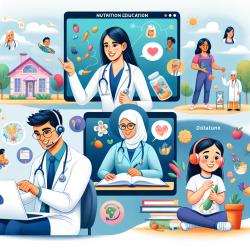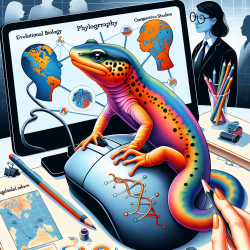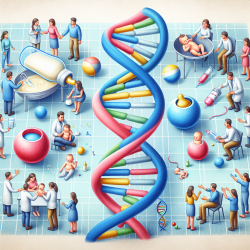Introduction
Nutrition education is a critical component of medical training, yet it often falls short of adequately preparing future healthcare providers. According to the research article "Nutrition Education in Medical Schools: What do Medical Students Think?" by Shanika Boyce et al., medical students express dissatisfaction with the nutrition education they receive, particularly regarding its application in clinical settings. This blog will explore the key findings of the study and provide actionable insights for practitioners looking to enhance their skills and improve patient outcomes.
Key Findings from the Research
The study surveyed medical students and pediatric interns to gauge their perceptions of nutrition education. Here are some of the critical findings:
- Students reported dissatisfaction with nutrition education related to obesity, prediabetes/diabetes, and cultural influences on diet.
- There was a notable lack of confidence in providing nutrition counseling to adolescent patients and delivering culturally appropriate advice.
- Students identified a need for improved curricula that address broader social determinants of health, such as food insecurity.
Implications for Practitioners
For practitioners, these findings highlight the importance of integrating comprehensive nutrition education into clinical practice. Here are some steps you can take to enhance your skills:
- Stay Informed: Keep abreast of the latest research and guidelines in nutrition education. This will help you provide evidence-based advice to your patients.
- Collaborate with Nutrition Experts: Work with dietitians and nutritionists to develop culturally sensitive dietary plans that address the unique needs of your patients.
- Enhance Counseling Skills: Develop your ability to counsel patients on nutrition, focusing on practical, culturally appropriate advice.
- Address Social Determinants: Understand the impact of food insecurity and other social determinants on your patients' health and incorporate this knowledge into your practice.
Encouraging Further Research
While the study provides valuable insights, it also underscores the need for further research. Practitioners are encouraged to engage in research initiatives that explore the effectiveness of different nutrition education approaches and their impact on patient outcomes.
Conclusion
Improving nutrition education for medical students is essential for better patient care. By implementing the insights from this research, practitioners can enhance their skills and contribute to better health outcomes for their patients. For those interested in delving deeper into the study, the original research paper is available for further reading.
To read the original research paper, please follow this link: Nutrition Education in Medical Schools: What do Medical Students Think?










